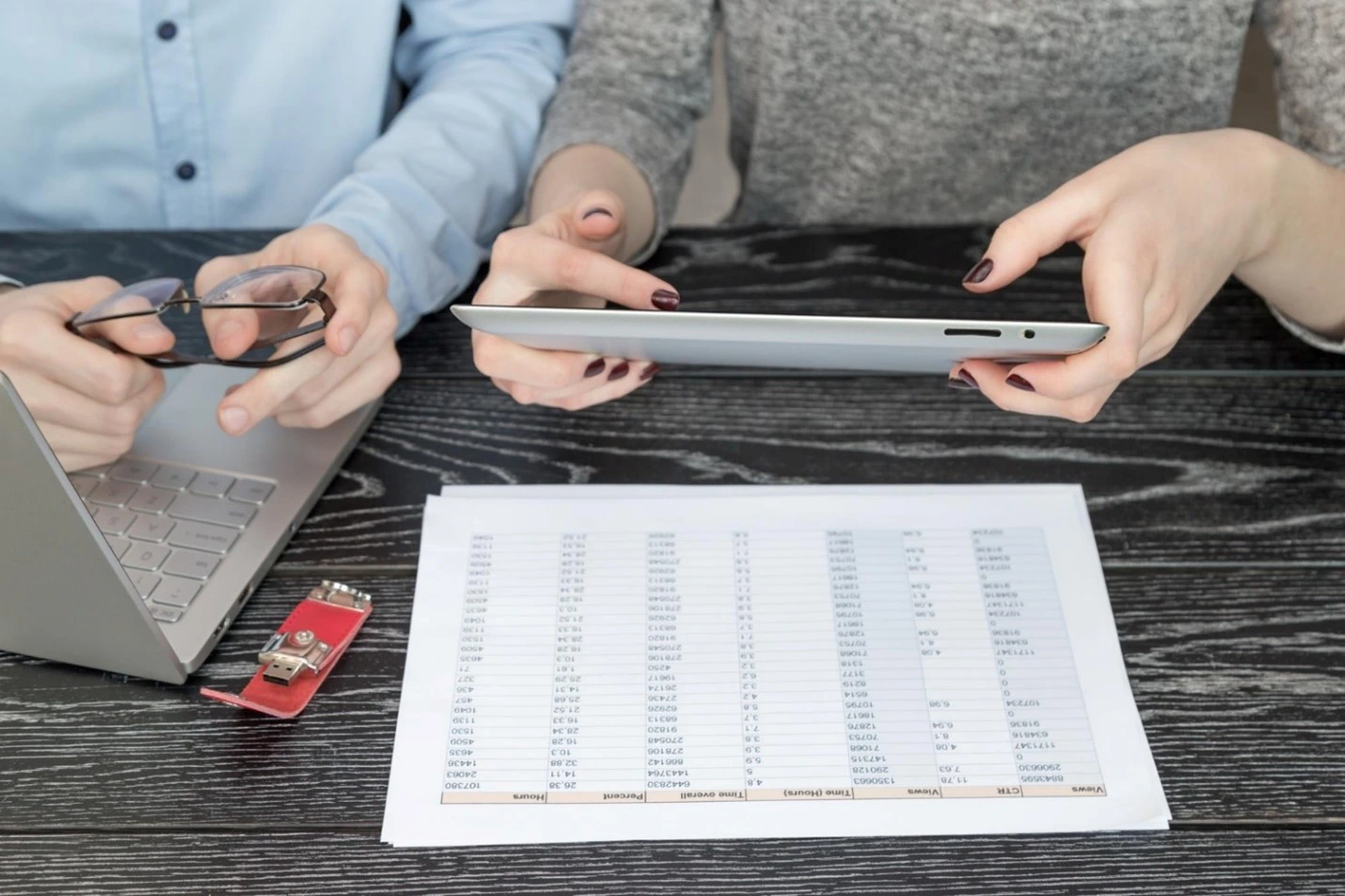

Effective communication is an essential aspect of the accounts receivable collection process as it plays a key role in businesses collecting outstanding payments from their clients. This process involves various essential components, one of them being effective communication strategies. The success of debt recovery efforts relies heavily on how you communicate with your consumers throughout the accounts receivable process. It has the power to determine its outcome. Accounts receivable trends suggest that businesses prioritizing strategic communication methods have a competitive edge in improving cash flow and reducing delinquencies. In a survey made by ScienceDirect it was found out that companies with solid communication strategies improve debt recovery rates by up to 25%.

In this article, we will discuss the significance of communication in debt collection, common communication errors, top strategies for successful communication, and advice for handling challenging consumers.
The Communication Process in Debt Collection
Efficient communication in the accounts receivable collection process can significantly impact the outcome and often involves understanding the consumer’s perspective, establishing a connection, and mutually agreeing upon a suitable payment arrangement.
To enhance effective communication during debt collection, consider implementing the following measures.
Preparation
It is a key to ensuring success. Preparations can make or break an outcome, so it’s important to be well-prepared. Before reaching out to the consumer, it is essential to carefully examine their payment history, and any relevant communication related to the debt. Not only does this provide insight into the consumer’s financial circumstances, but it also improves the overall customer experience throughout the accounts receivable collection process.
According to Peakflo’s “Businesses that personalize communication-based on customer profiles see a 27% increase in recovery rates”.
Active Listening
It is an essential skill that requires focus and concentration. It involves paying attention to the consumers, understanding their perspective, and responding thoughtfully. By actively listening, you demonstrate genuine interest and respect for them, which creates a deeper connection and understanding between both parties. Which not only improves communication but also builds strong relationships.

Compassion and Comprehension
Empathy and understanding can foster a more positive and collaborative environment during communication. It is essential to recognize the consumer’s circumstances and provide direction in handling the debt during accounts receivable recovery. Building trust and gaining insight into their perspective can also evoke empathy towards you.
According to a HighRadius’ “Companies with well-structured negotiation processes achieve up to 80% success in first-payment recovery“.
Negotiation and Persuasion
Strong negotiation and persuasion skills are crucial in debt collection. It is imperative to maintain a firm yet respectful approach when discussing payment options and urging consumers to meet their financial responsibilities.
Follow-up
Consistently staying in touch and promptly following up can significantly improve the progress of debt recovery. Keeping the consumer updated on any advancements and following through on any commitments made during communication is crucial. According to a Corcentric’s Automated follow-ups save time and resources, which enables you to focus on more complex cases and other business priorities. to give your internal source due credence, it would be better if you add another line after the quoted source and mention the automated follow up in there.
Common Errors in Debt Collection Communication
Several communication errors can easily hinder your accounts receivable collection process and hamper its success. The following are some of the most frequently observed mistakes in such scenarios:
Insufficient Preparation
Inadequate preparation for debt collection communication can result in confusion and ineffective correspondence.
Using Offensive or Intimidating Language
Using aggressive or offensive words can worsen the situation and make it more challenging to collect the debt.
Disregarding Consumer’s Concerns
Neglecting the consumer’s concerns can result in a loss of trust and a communication breakdown.
Neglecting Commitments
Failure to fulfill commitments made during communication can result in a loss of credibility and hinder efforts to collect debts.
Lack of Transparency
Insufficient clarity regarding the debt collection process may create confusion and hesitation. Using difficult terminology may cause this, so it is necessary to ensure that consumers understand them correctly.
Best Practices for Effective Communication in Debt Collection

Effective communication is crucial during debt collection. To ensure successful outcomes, it is important to follow the following best practices.
Personalized Communication
Customizing how you communicate with the consumer based on their specific situation can establish a sense of trust and increase the chances of recovering the debt effectively. For example, a study by McKinsey found that “digital-first strategies result in 35% higher repayment rates compared to traditional methods.“
Effective Communication
Effective communication channels can help minimize confusion and ensure mutual understanding throughout the accounts receivable recovery.
Transparency and Honesty
Promoting openness and truthfulness can foster trust and decrease the chances of misunderstandings.
Professional Approach
Effective communication, with a firm yet respectful and professional approach, is crucial in fostering a positive and collaborative atmosphere when collecting debts.
According to a report by the Kaiser Family Foundation (KFF) 56% of consumers have unpaid bills over $1,000 and two-thirds of patients have over $200. In this case taking aggressive measures makes no sense, the best strategy here is adopting a compassionate approach towards these collections.
Consistent and Timely Communication
Regular and timely follow-ups can help maintain progress in debt recovery efforts.
Strategies for Dealing with Difficult Consumers
Navigating difficult consumer s can be challenging. Although there may not be a one-size-fits-all solution, it is beneficial to recognize the specific type of consumer you are working with.
Below are some frequent consumer types and recommendations for effectively communicating with them:
Evasive Consumer
A consumer who evades communication or gives vague responses can be challenging to handle. To address this consumer effectively, it is crucial to establish concise communication channels, maintain regular follow-ups, and adopt a professional yet persistent approach.
Aggressive Consumer
Encountering a hostile consumer can be difficult. It is crucial to keep a cool head, acknowledge their grievances, and prevent the situation from escalating. In case of need, seeking legal counsel can assist in managing the matter effectively.
Emotional Consumer
A consumer with heightened emotions may experience distress while communicating about their debts. It is essential to handle such consumers by showing empathy, remaining patient, and providing them with support and guidance.
The Procrastinator
An individual who constantly postpones payment or provides excuses is known as a procrastinator. When faced with this type of consumer, it is crucial to establish specific payment deadlines and consequences in case of non-payment.
Professional Consumer
When dealing with a professional consumer, you must be firm and respectful. Seeking legal advice may be necessary to recover the debt. This type of consumer often defaults on payments and has a history of debt.
What’s CollectCo’s Way of Effective Recovery?
Managing debt collection can be problematic in the accounts receivable collection process, particularly for medium-sized businesses. Fortunately, CollectCo offers expert services that can streamline this process for your company, no matter your location or industry.
At CollectCo, our skilled debt collectors are here to promptly and efficiently retrieve any outstanding debts. We also offer personalized debt collection services that cater to the unique requirements of every business. Learn more about how CollectCo will help you in the best way possible.
By partnering CollectCo for debt collection, businesses can maintain their focus on core operations while guaranteeing swift recovery of outstanding debts.